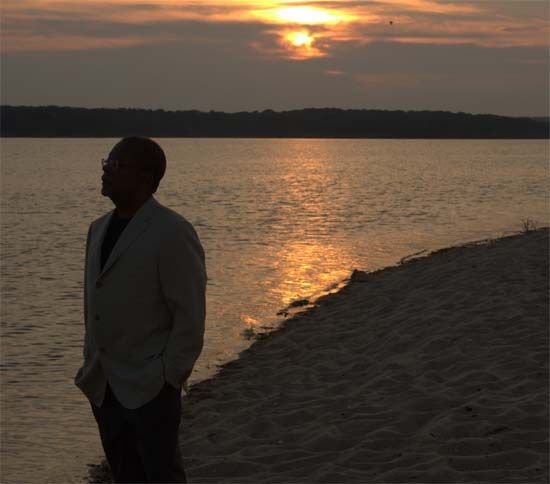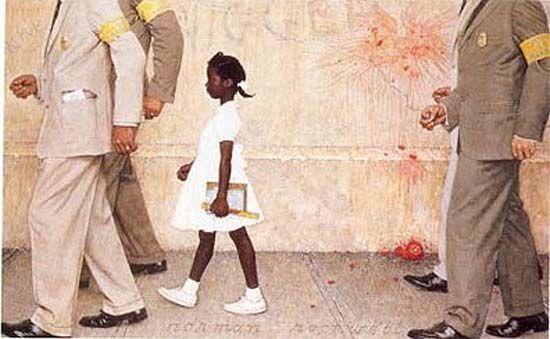“”The story of the African-American people is the story of the settlement and growth of America itself, a universal tale that all people should experience,” said Harvard scholar Henry Louis Gates Jr. whose new series, “The African Americans: Many Rivers to Cross” will premier on PBS October 22.
The series is accompanied by a book with the same name, which Kam Williams reviewed for The Afro:
By and large, history books have marginalized the African-American community by either omitting or minimizing its cornucopia of contributions to the country. Similarly, the African-American psyche has been trivialized by a host of harmful stereotypes which suggest that we aren’t as diverse or as capable of experiencing the same full range of emotions as Caucasians.
How else can you explain that the mayor of New York City might rationalize employing the “stop and frisk” police tactic against blacks in wholesale fashion, as if criminality is a racial trait instead of judging people by the content of their character as envisioned by Dr. Martin Luther King a half-century ago? Fortunately,”The African Americans: Many Rivers to Cross” has just been published in the face of such persisting, institutionalized prejudice.
He interviewed Gates, who said:
“To tell the whole sweep of African-American history – no one’s tried to do that. That was what we were crazy enough to do,” Gates said in an interview on Wednesday. He hopes the series will find its way into the nation’s schools as well as its living rooms, and acquaint audiences of all ages – both black and white – with black history, about which he says both races are equally ignorant.
“How can I help with the conversation about race? Schools are tools for the formation of citizenship. My target is the school curriculum: getting an integrated story told”
I have been using Gate’s previous series, Black in Latin America, in my anthropology and women’s studies classrooms and look forward to this new tool to illustrate and compliment efforts to incorporate black history and culture into both disciplines.
The series will be broadcast in six parts.
Episode One: The Black Atlantic (1500 – 1800)
Tuesday, October 22, 8-9 p.m.Episode Two: The Age of Slavery (1800 – 1860)
Tuesday, October 29, 8-9 p.m.Episode Three: Into the Fire (1861 – 1896)
Tuesday, November 5, 8-9 p.m.Episode Four: Making a Way Out of No Way (1897 – 1940)
Tuesday, November 12, 8-9 p.m.Episode Five: Rise! (1940 – 1968)
Tuesday, November 19, 8-9 p.m.Episode Six: It’s Nation Time (1968 – 2013)
Tuesday, November 26, 8-9 p.m.
For me, what is crucial about this is that it does not only deal with the past, since its conclusion in episode six brings us up to now, and raises questions for the future
After 1968, African Americans set out to build a bright new future on the foundation of the civil rights movement’s victories, but a growing class disparity threatened to split the black community in two. As hundreds of African Americans won political office across the country and the black middle class made unprecedented progress, larger economic and political forces isolated the black urban poor in the inner cities, vulnerable to new social ills and an epidemic of incarceration. Yet African Americans of all backgrounds came together to support Illinois’ Senator Barack Obama in his historic campaign for the presidency of the United States. When he won in 2008, many hoped that America had finally transcended race and racism. By the time of his second victory, it was clear that many issues, including true racial equality, remain to be resolved. Now we ask: How will African Americans help redefine the United States in the years to come?
I was particularly pleased to see that the series airs the voices of black women who played a key role in school integration and black movements.
Among them are:
Ruby Bridges, who many remember as the subject of the iconic Norman Rockwell painting “The problem we all live with”, depicting the day in 1960 that she entered first grade on the first day of court-ordered desegregation of New Orleans, Louisiana public schools, accompanied by U.S. Marshals.
Charlayne Hunter-Gault, award winning journalist, who with Hamilton Holmes, in 1961 became the first black students admitted to the University of Georgia.
Many histories leave out the voices of black revolutionary women, like those from SNCC and the Black Panther Party, which was founded today, October 15th, in Oakland, California.
The series includes Kathleen Neal Cleaver, who is still an activist focusing on inmate’s rights, and who teaches at both Yale and Emory University.
PBS continues to bring us important programming, withstanding continued efforts by the right to see it defunded.
I’m looking forward to this series-kudos to Professor Gates and Public Broadcasting.
Cross-posted from Black Kos


8 comments